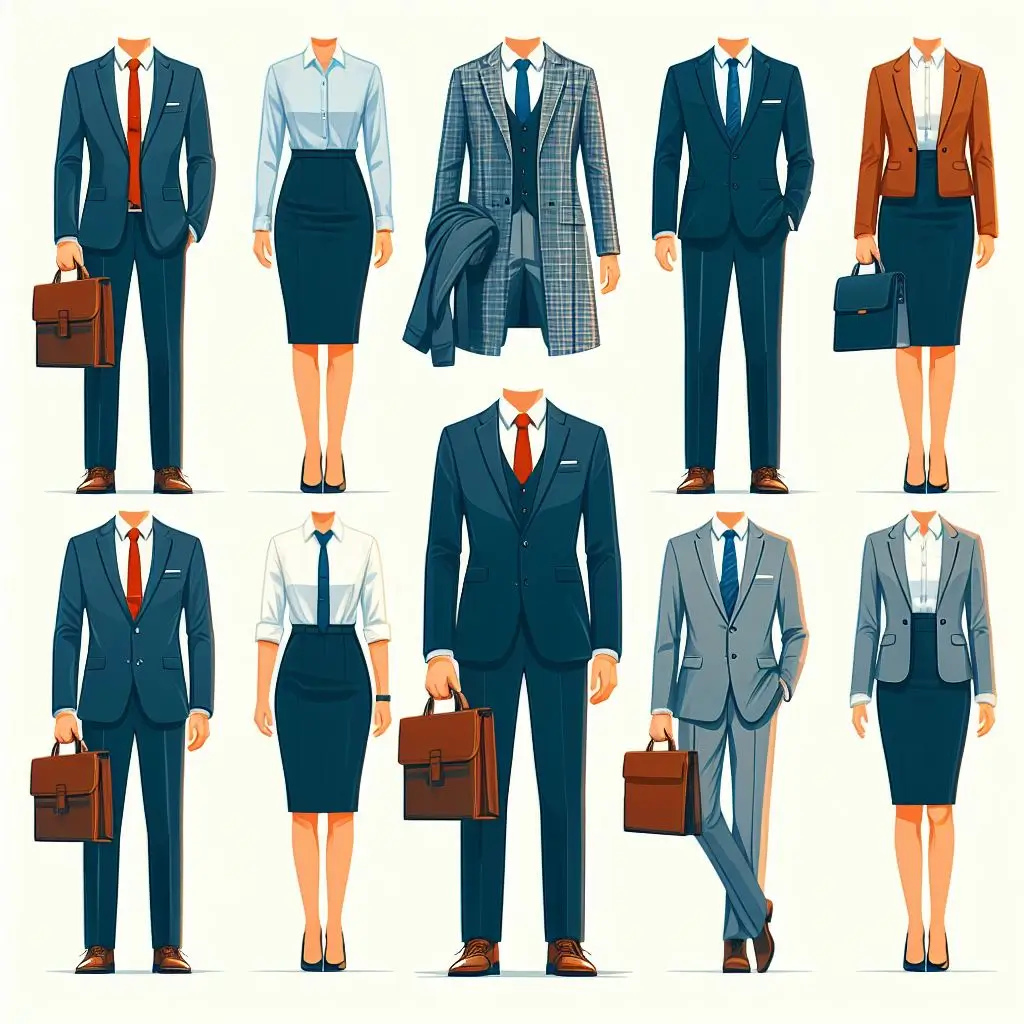In the world of work, first impressions matter a lot. How you dress plays a big role in that first impression. But it’s more than just looking nice. Dressing right at work is about showing professionalism and setting yourself up for success.
7 Reasons Why is it Important to Dress Appropriately at Work
In this article, we’ll delve into the 7 multifaceted reasons why dressing appropriately is important at work for success in any professional setting.
1- Establishing a Professional Image:
Your attire serves as your introduction before you even utter a word. Whether it’s a job interview, a client meeting, or a regular workday, the way you present yourself leaves a lasting impression.
Dressing appropriately communicates that you value professionalism and take your role seriously. It sets a positive tone for interactions and establishes credibility from the outset.
It’s like showing that you take your job seriously and respect the place you work in. Plus, it shows that you fit in with the company’s vibe.
Consider how different industries have varying expectations for professional attire.
For example, while a creative agency might encourage a more relaxed dress code to foster creativity, a law firm may require a more formal dress standard to maintain the seriousness of the profession.
2- Confidence and Productivity:
Ever notice how you feel better when you’re wearing your favorite outfit? Dressing well can give you a confidence boost. And when you feel good about yourself, you’re more likely to do your best work. Studies even show that people who dress professionally tend to be more productive.
This boost in confidence can translate into better performance during meetings, presentations, and everyday tasks. When you feel confident in your appearance, you’re more inclined to take on challenges and assert yourself in the workplace.
Dressing appropriately signals to others that you respect the workplace environment and adhere to its standards. It demonstrates a commitment to upholding professional norms and fosters trust among colleagues and clients alike. Moreover, dressing professionally enhances your own sense of professionalism, reinforcing your dedication to your work.

3- Upholding the Image of Organization:
Your attire isn’t just a reflection of your individual professionalism; it also contributes to the collective image of your organization. When employees dress appropriately, they uphold the brand image and reputation of the company.
Consistently adhering to the dress code ensures a cohesive and unified representation of the company’s values and standards, both internally and externally.
In client-facing roles, in particular, dressing appropriately reinforces trust and confidence in the company’s capabilities.
4- Respect and Relationships:
Imagine showing up to work in your pajamas. It might be comfy for you, but it doesn’t show much respect for your coworkers, or your workplace.
Dressing appropriately is a way of saying, “I take this seriously, and I respect you.” Plus, when you meet clients or customers, looking sharp helps build trust. Your appearance reflects not only on yourself but also on your organization.
By dressing appropriately, you contribute to maintaining a positive reputation for your company. Moreover, dressing professionally fosters an environment of respect and unity within the workplace, a sense of respect, and camaraderie among colleagues, promoting a positive work environment.
When everyone adheres to a common dress code, it eliminates distractions and potential conflicts related to attire. Consistency in dress promotes equality among colleagues and reinforces a shared sense of purpose and belonging. Additionally, it encourages a focus on collaboration and productivity, rather than superficial differences.
5- Career Advancement:
Here’s a secret: How you dress can actually affect your chances of moving up in your career. When you look professional and presentable, people notice. They see you as someone who’s ready for bigger responsibilities.
So, dressing right isn’t just about today—it’s an investment in your future. As you progress in your career, dressing appropriately becomes even more critical.
Whether you’re aiming for a promotion, seeking new opportunities, or attending networking events, your attire can significantly influence how others perceive you and your potential for advancement.
6- Legal and Safety Considerations:
Some jobs have rules about what you can wear. It’s not just about looking good; it’s about staying safe. For example, if you work with machinery, loose clothing could be dangerous. Following the dress code keeps you safe and on the right side of the law.
Moreover, adhering to dress code regulations ensures compliance with legal standards and industry guidelines. This not only protects individuals from potential hazards but also upholds the integrity and professionalism of the workplace.
7- Personal Expression:
Dressing appropriately doesn’t mean you have to sacrifice your personal style. You can still express yourself through your clothes while maintaining a professional appearance. Find ways to incorporate your unique style into your work wardrobe while still adhering to company guidelines.
Experiment with different colors, patterns, and accessories to add flair to your professional attire. By striking a balance between personal expression and professional presentation, you can showcase your individuality while upholding the standards of workplace attire.

In conclusion, the significance of dressing appropriately at work extends far beyond superficial appearance. It shapes first impressions, reflects professionalism, boosts self-confidence, upholds company image, and cultivates respect and unity among colleagues. That’s why is it important to dress appropriately at work.
By prioritizing appropriate attire, individuals contribute to a positive work culture and set the stage for personal and professional success. Therefore, embracing the practice of dressing appropriately is not merely a matter of compliance with rules; it’s an investment in one’s professional reputation and overall workplace experience.



